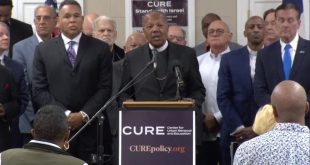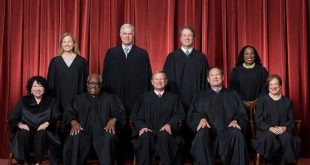The U.S. Supreme Court had to consider this issue in 303 Creative v. Elenis:
Does applying a public-accommodation law to compel an artist to speak or stay silent violate the Free Speech Clause of the First Amendment?
The court on Friday said yes, the law does violate the Free Speech Clause of the First Amendment. The vote was 6-3. Justice Neil Gorsuch wrote the majority opinion.
Alliance Defending Freedom (ADF) in 2016 filed a pre-enforcement lawsuit on behalf of Lorie Smith, a Christian web designer, challenging a Colorado “anti-discrimination” law that would compel her to create a message she opposes. Smith wanted to expand her business to provide wedding services but did not want to use her artistic talents to create sites and other materials that celebrate homosexual “weddings.” If she provided services for weddings, she also must provide services for “weddings.”
The law also barred Smith from giving the reason why she wouldn’t provide these services — if the reason was religious.
Smith hadn’t been sued, but she knew someone eventually would make a test case of her. A federal court ruled in Colorado’s favor, and Smith appealed. The U.S. Court of Appeals for the Tenth Circuit also ruled against Smith. She took her case to the Supreme Court.
The high court contended (PDF) in 303 Creative that the “First Amendment prohibits Colorado from forcing a website designer to create expressive designs speaking messages with which the designer disagrees.”
The Supreme Court previously has ruled that the government can’t compel speakers to accept a message they oppose.
“Here, Colorado seeks to put Ms. Smith to a similar choice,” Justice Gorsuch wrote. “If she wishes to speak, she must either speak as the State demands or face sanctions for expressing her own beliefs, sanctions that may include compulsory participation in ‘remedial . . . training,’ filing periodic compliance reports, and paying monetary fines.”
Colorado went after Christian baker Jack Phillips under the same law. The Supreme Court also ruled in his favor in 2018. The vote was 7-2, with liberal justices Stephen Breyer and Elena Kagan joining the conservative justices.
“The court reiterated that it’s unconstitutional for the state to eliminate from the public square ideas it dislikes, including the belief that marriage is the union of husband and wife,” said ADF CEO, President, and General Counsel Kristen Waggoner. “Disagreement isn’t discrimination, and the government can’t mislabel speech as discrimination to censor it.”
Chief Justice John Roberts joined the opinion, along with Justices Clarence Thomas, Samuel Alito, Brett Kavanaugh, and Amy Coney Barrett. Justice Sonia Sotomayor filed the dissenting opinion, which Justices Elena Kagan and Ketanji Brown Jackson joined.
Photo credit: Alliance Defending Freedom
Stand up for freedom! Sign up for the newsletter and help spread the word.
 CURE News and Clergy Blog News and Commentary for Christians
CURE News and Clergy Blog News and Commentary for Christians



